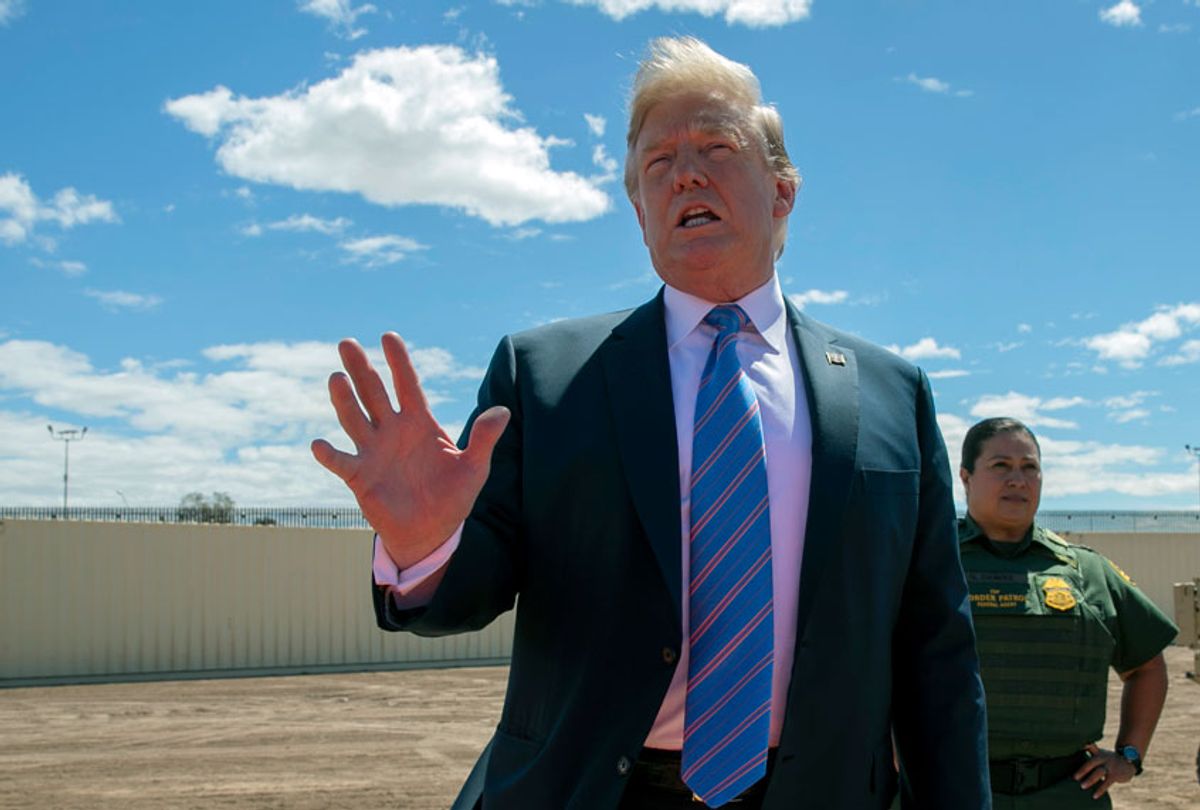Farmers around the country warned of food supply shortages after the Trump administration imposed new restrictions on seasonal workers from Mexico amid the coronavirus pandemic.
The Trump administration has used the public health crisis to impose new restrictions at the Southern border. The U.S. Embassy in Mexico announced Monday that "all U.S. consulates in Mexico will suspend routine immigrant and nonimmigrant visa services starting March 18, 2020, and until further notice."
Agriculture Secretary Sonny Perdue told American growers that his department would continue to process applications for returning guest workers. But new applicants, who make up nearly 60% of the H2A guest worker program applications, will be denied, Reuters reported.
The restrictions come as stores across the U.S. have been stripped bare by individuals stockpiling food as states and cities urge residents to stay inside as much as possible. The latest move could devastate farms that grow fruits and vegetables and rely on seasonal guest workers for their operations.
"American farmers will not have access to all of the skilled immigrant labor needed at a critical time in the planting season," the American Farm Bureau said in response to the new policy. "This threatens our ability to put food on Americans' tables."
Dave Puglia, the president of the Western Growers Association, told Reuters that the restrictions will inevitably result in less food in the U.S. supply.
"When the process is stopped midstream, it likely means those crews won't be there exactly when they're needed, if they get there at all," he explained. "That means lost crops. That means lost food."
Trump has criticized the guest worker program, which his own company relies on heavily, but there are not enough workers in the U.S. to work the fields, according to growers.
"Increasingly . . . we just don't have the labor force domestically," Puglia said. "We're turning more and more to H2A workers, because there's no other way to get our crops harvested and packed and off to consumers."
Puglia predicted that the supply of broccoli, cauliflower, celery, leafy greens, melons and radishes would be the hardest hit.
The Department of Agriculture said in a statement to Reuters that it was "directly engaged with the State Department and working diligently to ensure minimal disruption in H2A visa applications during these uncertain times."
Guest worker visas will still be processed in smaller nations like Guatemala and El Salvador, the department said.
But Robert Guenther, the senior vice president for public policy for the United Fresh Produce Association, which represents growers, distributors, and retailers, told Bloomberg News that restrictions on guest workers would be "devastating" for the food supply amid a pandemic.
"There won't be anyone to harvest the crops," he said. "It will be devastating to growers and ultimately to the supply chain and consumers. They won't have the food."
Like Puglia, Guenther predicted that the restrictions would disproportionately hit the supply of leafy greens, cucumbers and berries. If the crisis extends into May and June, the U.S. could see a shortage of citrus fruit, peaches and plums.
The U.S. will not be able to easily ship in products from overseas, because other countries are dealing with their own labor shortages and supply issues as they combat COVID-19.
The National Pork Producers Council also warned that the coronavirus could limit meat as it told Congress that it faces labor shortages amid the crisis. The United Food & Commercial Workers Union argued that there are plenty of American workers to fill the jobs, Bloomberg reported, but the industry group told Congress that school closures have strained their labor force and it simply cannot keep up production without additional guest workers.
"Our farms and plants tell us they are paying over-prevailing wages and still can't find people," Nick Giordano, a vice president at the pork producer council, told the outlet. "If UFCW can supply us with employees, that would be great, because our farms and plants are hiring now."



Shares